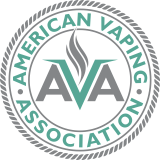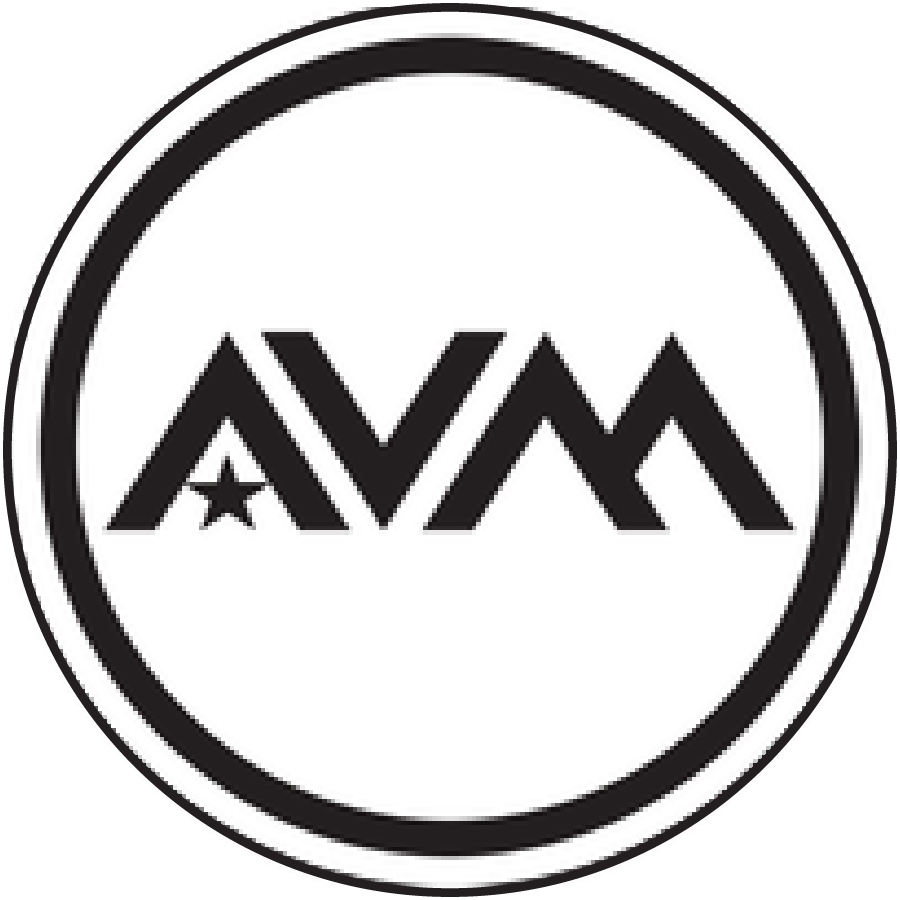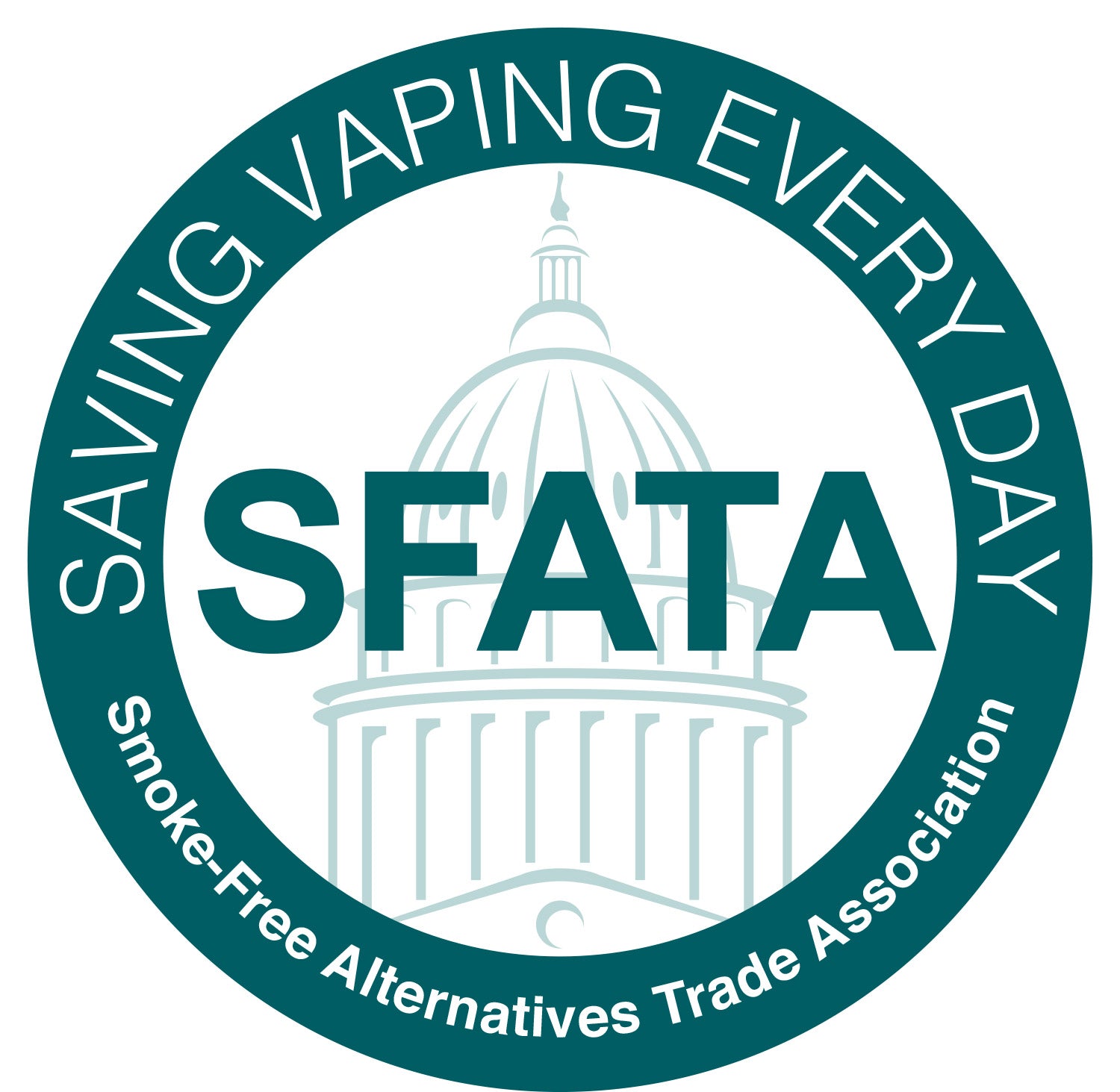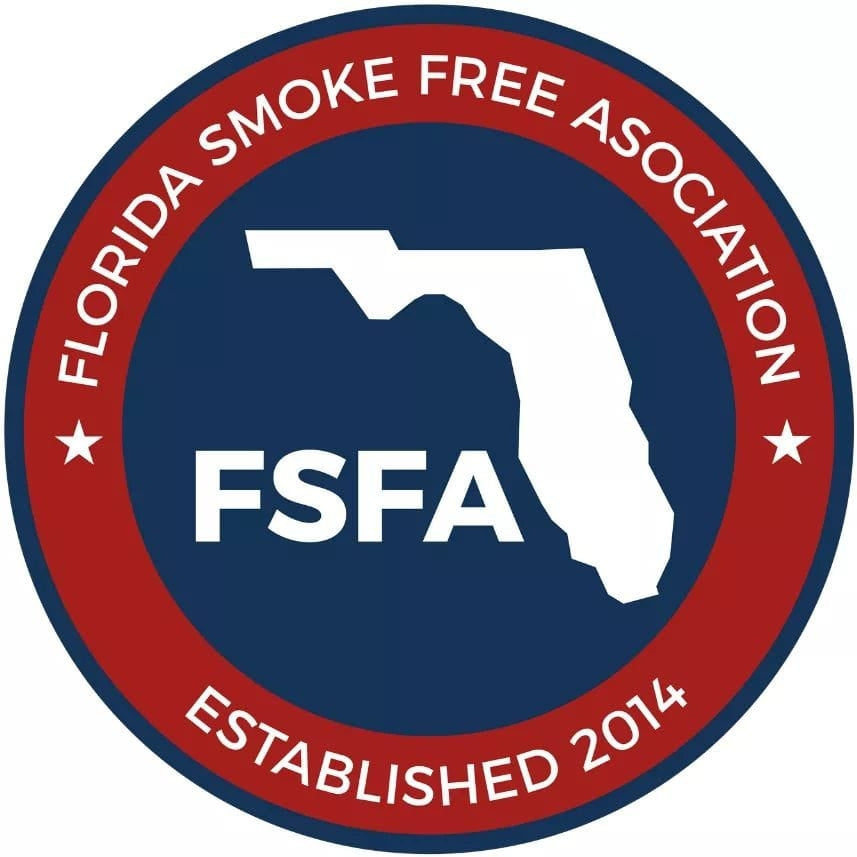If you have been vaping for a while, chances are, the prices you've paid for your e-liquids and devices have steadily (or sharply) increased over time. And this isn't due to inflation, technology advancing and therefore cost advancing, or simply your own budgeting cannot keep up with the habit of doing so. The main reason why the cost of vaping products have steadily increased is due to the this three-letter word everyone hates: TAX.
Since vaping products are designed for adult smokers - keyword being smokers - tax authorities correctly assume that the money that would otherwise be spent on cigarettes and traditional tobacco products are now going to vapor products. Given the historical Tobacco Master Settlement Agreement (MSA) of the 1990s, state governments collecting taxes on cigarettes have steadily decreased as people have begun widespread adoption of vaping products. In the eyes of the government, this lost revenue must be made up as a suitable financing option for shoring up the protection of public health.
On paper, taxes on any degree of smoking products make sense, to an extent. As an e-liquid manufacturer and just a regular vaping consumer alike, these taxes hurt. So today, we'll be detailing out the taxes categorized by state so you can be more informed on how much you are truly paying for the e-liquids and devices you have come to love.
WHAT IS THE LOGIC BEHIND VAPE TAXES?

- BLVK Camo Crewneck -
The most common form of vape taxes are excise taxes. Excise taxes are applied to achieve a number of things including but not limited to:
- Raising money for the state and/or its respective government agencies (e.g. California Department of Public Health)
- Changing the public perception of vaping (e.g. Make vaping so expensive that it's financially irresponsible for someone to continue purchasing the products)
- Encouraging the protection of public health and/or environment (e.g. Tax revenue to fund more programs geared towards responsible waste management of vaping products)
Taxes on smoking products fall in line with taxes on alcohol, gasoline, drugs, and even some candy and are classified as sin or luxury taxes. These products are not a requirement to exist in society, but can pose a health or environmental risk should widespread use continue. Therefore, the logic to tax these products is generally made to dissuade the use of it over time.
The most common outcome of taxing individual products are that the person responsible for paying said taxes are the end-users - YOU. State governments and taxing authorities become dependent on these taxes to fund XYZ programs that may or may not directly impact your life while living in the state. Due to the dependence, it is usually not in the best interest of the state to outright ban these products. Why do you think cigarettes are not outright banned, and to that extent, vaping products? In the eyes of the state, that's money being left on the table.
STATE-BY-STATE VAPING TAX GUIDE
It is worth mentioning that not EVERY state has a tax on vaping products. For the states that do tax, however, state taxes stack on any other taxes that might be in place, usually levied at the local city or county level. These compounded taxes are responsible for why a bottle of e-liquid can vary widely in price depending on where you live.
Please also note, this is not an exhaustive list of taxes and may be subject to change at any point. Instead, consider this guide as a starting point for you to cross-reference with the tax laws in your specific area.
ALABAMA
Alabama does not levy a state tax on vapor products. They are, however, subject to the standard sales and use tax collected at the county level. Given the 351 local tax jurisdictions in the state, you can expect an average of 5.071% tax on your favorite vaping products.
ALASKA
Alaska does not levy a state tax on vapor products. Certain municipalities, however, have their own taxes levied at the wholesale level and passed through to the final retail price:
- Juneau, NW Arctic, and Petersburg Boroughs each levy a 45% wholesale tax on nicotine-containing products.
- Anchorage and Matanuska-Susitna Boroughs each levy a 55% wholesale tax.
ARIZONA
While Arizona does have a luxury tax on tobacco products, and requires all distributors and manufacturers to register with the state's Department of Revenue to pay said taxes, vapor products are not currently part of that list.
ARKANSAS
Arkansas does not levy a state tax. You may, however, be subject to the 6.5% standard sales and use tax collected at the local level.
CALIFORNIA
California, naturally, being one of the most expensive states to live in, also has one of the steepest taxes on vapor products. Rates set annually by the Board of Equalization, vapor taxes mirror what cigarette manufacturers are required to pay. As it stands:
- Wholesale tax at 63.49% for all nicotine-containing products
- Beginning July 1, 2022, there will be a retail tax at 12.5% for all nicotine-containing products, including products bought from online stores located in other states.
COLORADO
Colorado's taxes on nicotine-containing vapor products mirror the existing progressive tax rates on non-cigarette tobacco products. Simply put, as time goes on, the state will gradually increase the tax rate on the manufacturer's listing price.
- 2021 (when the tax went into effect): 30% of the manufacturer's listing price
- 2022: 35%
- 2023: 50%
- 2024: 56%
- 2027: 62%
These tax rates only apply to nicotine-containing vapor products. This means bottled e-liquids and devices that contain e-liquid such as disposables or pods. If there are any vapor products that are FDA-approved as a Modified Risk Tobacco Product (MTRP), which no company in the country is FDA-approved, then the tax rates are halved.
CONNECTICUT
Connecticut has a two-tiered tax system. The state taxes on a per-milliliter basis in closed-system products (say goodbye to large capacity pods and pre-filled tanks) and a wholesale tax on open e-liquids.
- Per-millimeter tax on closed system products: $0.40
- Wholesale tax on open system products (e-liquid bottles & refillable tanks/cartridges/pods): 10%
DELAWARE
Delaware levies a $0.05 per-milliliter tax on nicotine-containing e-liquids.
DISTRICT OF COLUMBIA
The nation's capitol classifies vapor products as "other tobacco products," and levies a tax on the wholesale price based on a rate that is indexed to the wholesale price of cigarettes.
The tax stands at a whopping 91% on both hardware and nicotine-containing e-liquid. Fortunately, the relatively small size of the capitol relative and the close proximity of other states, you can effectively walk across to Virginia or order something online to pay less or entirely zero taxes if you really wanted to.

FLORIDA
Florida does not levy a state tax. You may, however, be subject to the 5.5% standard sales and use tax collected at the local level.
GEORGIA
Georgia levies a per milliliter tax on e-liquid in closed-system products (pods, cartridges, disposables) and a wholesale tax on open-system devices and bottled e-liquid, regardless if these products contain or do not contain nicotine. It looks like this:
- Per milliliter tax on closed system products: $0.05
- Wholesale tax on open-system products and e-liquid bottles: 7%
HAWAII
Hawaii currently does not levy a state tax on vapor products. There is, however, an upcoming senate bill that, if passed, would impose a 70% wholesale tax and prohibit direct-to-consumer shipping.
If you live in the state, consider weighing your options to to see if you can live with a higher price on your vaping products. In the event that you cannot live with that, there is still time to get involved. Hawaii has a very robust system in place where people can comment directly on bills via their bill pages. All you need to do is set up a free account on the legislature's website and submit a written testimony. Please note, written testimonies are due within 24 hours prior to the hearings.
Fight for accessibility and your right to vape here:
OPPOSE SB2278 SD1IDAHO
While Idaho does have a 40% luxury tax on tobacco products levied at the wholesale level, vapor products are not included in its jurisdiction. You may be subject to the overarching 6% sales and use tax charged at the time of purchase.
ILLINOIS
Illinois levies a state tax on all vaping products, including e-liquids that do not contain nicotine. In addition, Cook County and the city of Chicago each levies their own taxes. All three breakdown as follows:
- Statewide tax: 15% wholesale tax on all vaping products including non-nicotine containing e-liquids
- Cook County: $0.20 per milliliter of nicotine-containing vapor products
- City of Chicago: $1.50 per unit tax on any nicotine containing vapor product, $1.20 per milliliter of e-liquid
One way to skirt excessive taxes is to go to your local vape shop and ask for a 0MG bottle of e-liquid. Most shops adopt the EU equivalent of freebase e-liquid sales by offering DIY shots of nicotine to add to your flavor base.
INDIANA
Starting July 1, 2022, Indiana will levy a two-tier vapor tax collected at both the wholesale and retail levels. Its rates are set annually through its budget bill and breaks down as follows:
- Wholesale Tax: 25% on closed system products such as pods, cartridges, and disposables
- Retail Tax: 15% on open-system products such as bottled e-liquid
IOWA
Iowa does not levy a state tax. You may, however, be subject to the 6% standard sales and use tax collected at the local level.

BLVK Fusion - Kiwi Pom Berry Ice

BLVK Fusion - Citrus Strawberry Ice
KANSAS
Kansas levies a $0.05 per milliliter tax on all e-liquids regardless if the products contain or do contain nicotine.
KENTUCKY
Kentucky levies a two-tiered vapor tax collected at the wholesale level on both closed system e-liquids and open-system devices regardless if the e-liquids contain or do not contain nicotine.
- Wholesale tax: 15% on open-system devices
- Per-milliliter tax: $1.50 per unit on closed system products such as pods, cartridges, and disposables
LOUISIANA
Louisiana levies a $0.05 per milliliter tax on all e-liquids regardless if the products contain or do not contain nicotine.
MAINE
Maine levies a 43% wholesale tax on all vaping products regardless if the e-liquids contain or do not contain nicotine.
MARYLAND
Maryland levies a retail tax on all open-system vaping products, nicotine-containing e-liquids, and a specifically on closed system products with a capacity not exceeding 5ML. In addition to state-level taxes, one county imposes further taxes. It breaks down as follows:
- Retail tax: 6% on all open-system vaping products and bottled e-liquids that contain nicotine
- Small capacity tax: 60% on both open-system and closed system products that are smaller than 5ML
- Montgomery County: 30% wholesale tax on all vaping products including hardware that does not contain e-liquid
MASSACHUSETTS
Massachusetts levies a 75% wholesale tax on all vaping products both that contain and do not contain nicotine. In addition, all consumers are required to provide proof that the products have been taxed via a receipt.
MINNESOTA
Being the first state to ever impose a vapor tax, Minnesota imposes a tax on all vapor products, hardware and e-liquid alike. Originally set at 70% of the wholesale cost, the tax now stands at 95% specifically for nicotine-containing products that are imported into the state. For products that are produced within the state, only the nicotine itself is taxed.
MISSISSIPPI
Mississippi does not levy a state tax. You may, however, be subject to the 7% standard sales and use tax collected at the local level.
MISSOURI
Missouri does not levy a state tax. You may, however, be subject to the various sales and use tax rates levied at the county level averaging between 8.8% to 11%.



MONTANA
Montana does not levy a state tax. The state also remains one of the few states to not impose a general sales and use tax.
NEBRASKA
Nebraska does not levy a state tax. The city of Omaha, however, imposes a 3% tobacco tax, of which, vaping products are classified as such.
NEVADA
Nevada imposes a 30% wholesale tax on all vapor products including products that contain and do not contain nicotine.
NEW HAMPSHIRE
New Hampshire levies an 8% wholesale on open system vaping products including nicotine-containing e-liquids, and a $0.30 per milliliter tax on closed system products such as pods, cartridges, and disposables.
NEW JERSEY

New Jersey levies a three-tiered tax on vapor products. While a bill was vetoed by Governor Phil Murphy back in 2020, the three-tiered tax exists as follows:
- $0.10 per milliliter on the retail price of closed system products such as pods, cartridges and disposables
- 30% wholesale tax on devices
NEW MEXICO
New Mexico levies a two-tiered tax on e-liquids both collected at the wholesale level and applicable to both nicotine-containing and non-nicotine containing products. The taxes breakdown as follows:
- 12.5% wholesale tax on bottled e-liquid
- $0.50 per unit on closed system products under 5ML
NEW YORK
New York levies a 20% retail tax on all vapor products regardless of whether they contain or do not contain nicotine.
NORTH CAROLINA
North Carolina levies a $0.05 per milliliter tax on all nicotine-containing e-liquids.

- BLVK N' Yellow Series -
NORTH DAKOTA
North Dakota does not levy a state tax. You may be subject to the state's 5% sales and use tax collected at the county of local level.
OHIO
Ohio levies a $0.10 per milliliter tax on both open-system and closed-system products. This tax only applies to nicotine containing e-liquids.
OKLAHOMA
Oklahoma does not levy a state tax. You may be subject to the state's 4.33% sales and use tax collected at the county of local level.
OREGON
Oregon's vapor taxes are classified as "non-cannabis inhalant delivery systems" which include hardware and "components" in which e-liquids fall under those components. The tax levies a 65% wholesale tax for any vapor products not directly sold by cannabis dispensaries.
PENNSYLVANIA
Pennsylvania levies a 40% wholesale tax on e-liquid and e-liquid containing devices such as disposables. The tax also applies to e-liquids containing and not containing nicotine.
PUERTO RICO
While Puerto Rico is not a state (yet), the U.S. territory imposes a $0.05 per milliliter tax on e-liquid regardless of nicotine classification and a $3.00 per unit tax on devices.
RHODE ISLAND
Rhode Island does not levy a state tax. You may be subject to the state's 7% sales and use tax collected at the county of local level.
SOUTH CAROLINA
South Carolina does not levy a state vapor tax. The state, however, combines its general sales and use tax with the local tax rate for a combined total of 7.44% - the state levying 6% while the counties and local cities being able to tack on that extra 1.44%.
SOUTH DAKOTA
Similar to South Carolina, South Dakota does not levy a state vapor tax. Instead combines its general sales and use tax with the local tax rate for a combined total of 6.314% - the state levying 4.5% while the counties and local cities being able to tack on that extra amount.
TENNESSEE
Tennessee does not levy a state tax. You may be subject to the state's 7% sales and use tax collected at the county of local level.



UTAH
Utah levies a 56% wholesale tax on e-liquid and other closed-system devices. The tax applies to products that both contain and do not contain nicotine.
VERMONT
Being the state with the highest vapor tax in the country, Vermont levies a 92% wholesale tax on both e-liquid and devices; and applies to all products regardless if its contains or does not contain nicotine.
VIRGINIA
Virginia levies a $0.066 per milliliter tax on nicotine-containing e-liquid.
WASHINGTON
Washington levies a two-tiered, per-milliliter tax regime based on e-liquid capacity. The taxes are applicable to all vapor products regardless of whether it contains or does not contain nicotine. It breaks down as follows:
- $0.27 per milliliter on e-liquid in pods and cartridges smaller than 5ML
- $0.09 per milliliter on e-liquid in containers larger than 5ML. Containers apply to cartridges, tanks, and larger-capacity disposable devices, like our Ello Disposables.
WEST VIRGINIA
West Virginia levies a 0.075 per milliliter tax on all e-liquid, regardless if the e-liquid is in an open or closed system and whether there is nicotine contained in it or otherwise.
WISCONSIN
Wisconsin levies a $0.05 per milliliter tax on closed system e-liquid products such as pods, pre-filled cartridges and disposables regardless if the product contains or does not contain nicotine.
WYOMING
Wyoming levies a 15% wholesale tax on all vapor products, both hardware and e-liquids, both nicotine and non-nicotine containing products.

- Ello Disposables Series -
THE PLAIN TRUTH: VAPING IS GETTING EXPENSIVE
Here is the plain, hard truth: vaping is getting expensive - and it's likely not going to change. The worst part of all these taxes is that ultimately, you, as the user is responsible for fronting that bill.
While we're not going to argue the ethics of taxing vapor products, one thing is certain: these vapor taxes are far better than paying the cost of healthcare for smoking cigarettes. We hope you found this guide helpful. We'll try to keep this article updated as often as possible. Happy vaping, BLVK fam.













Leave a comment
This site is protected by hCaptcha and the hCaptcha Privacy Policy and Terms of Service apply.